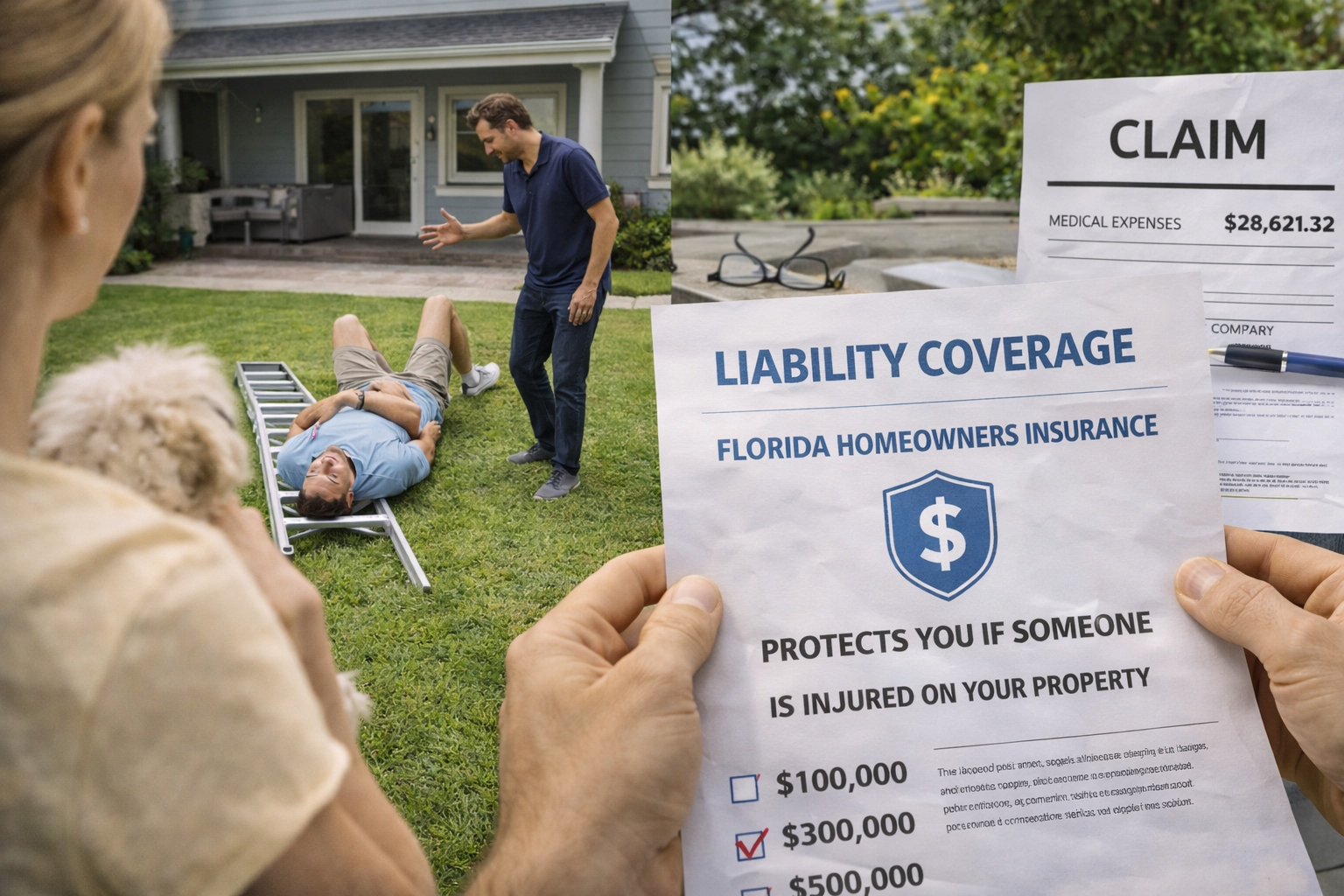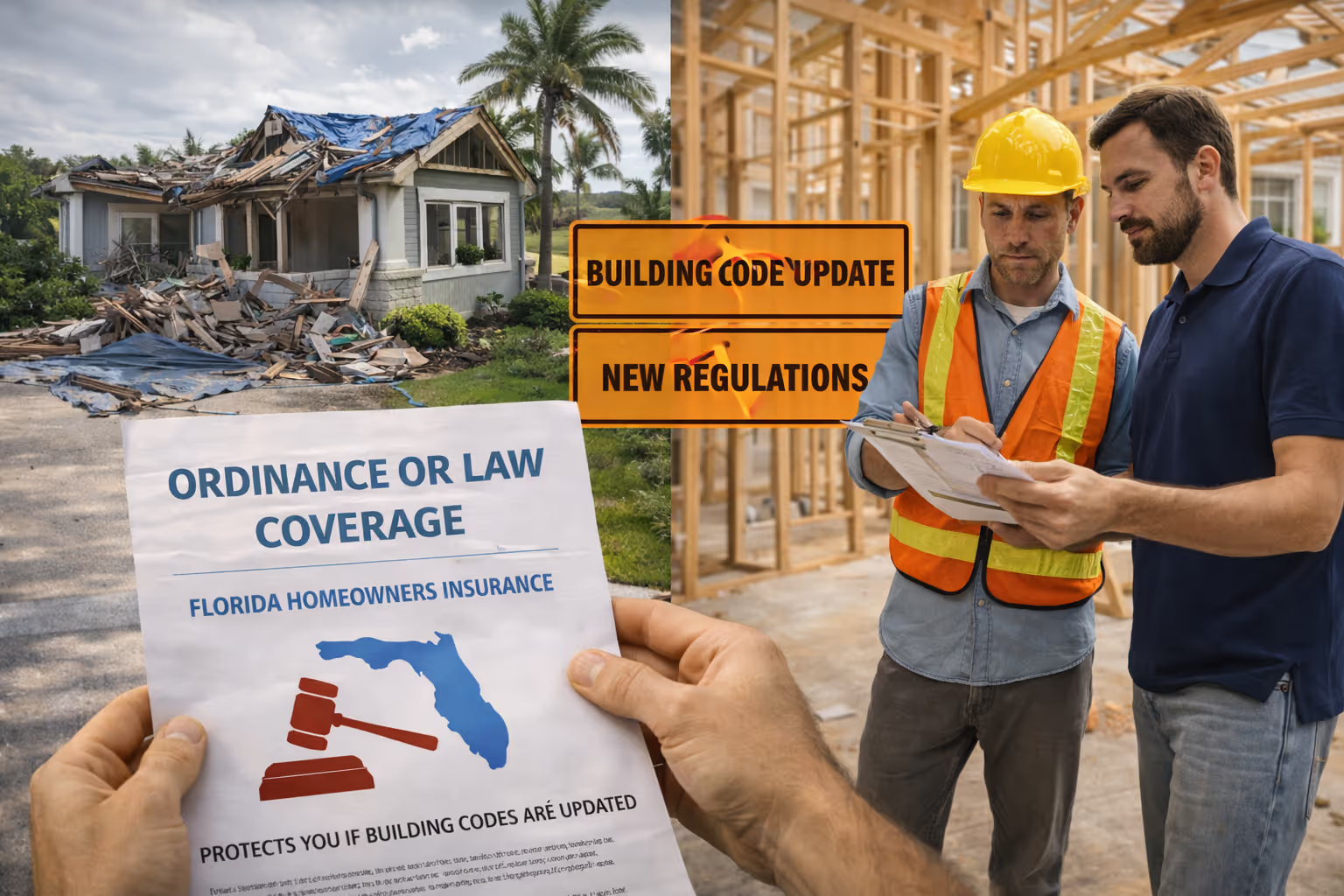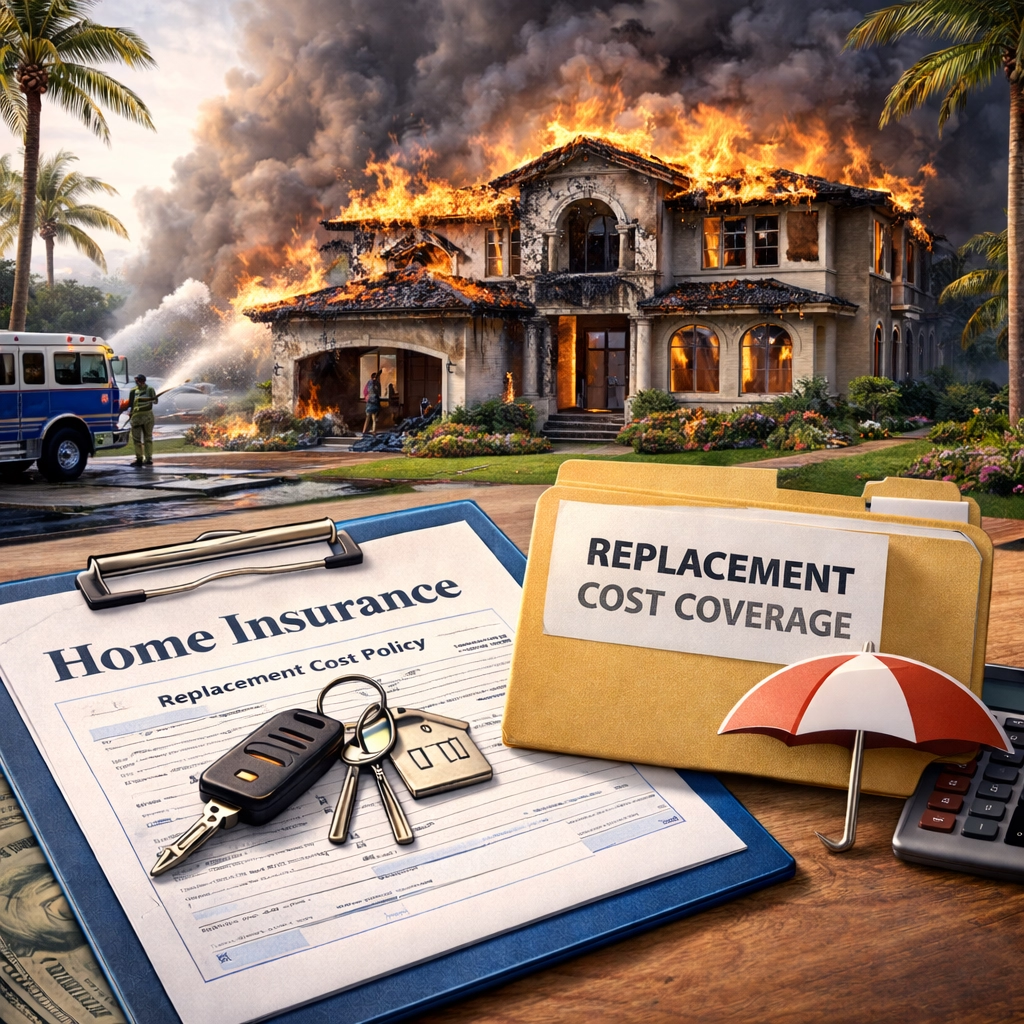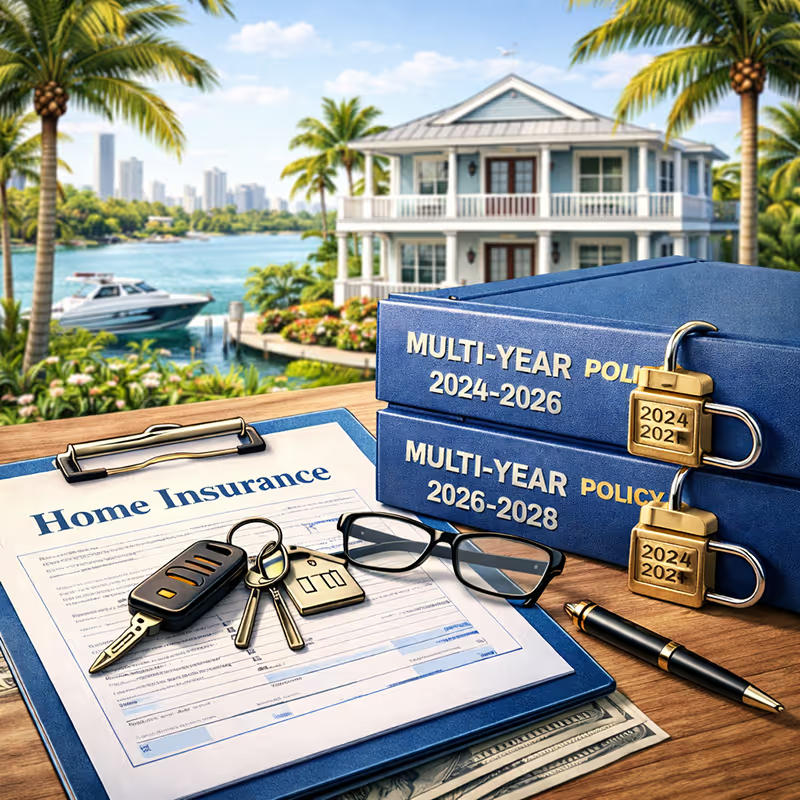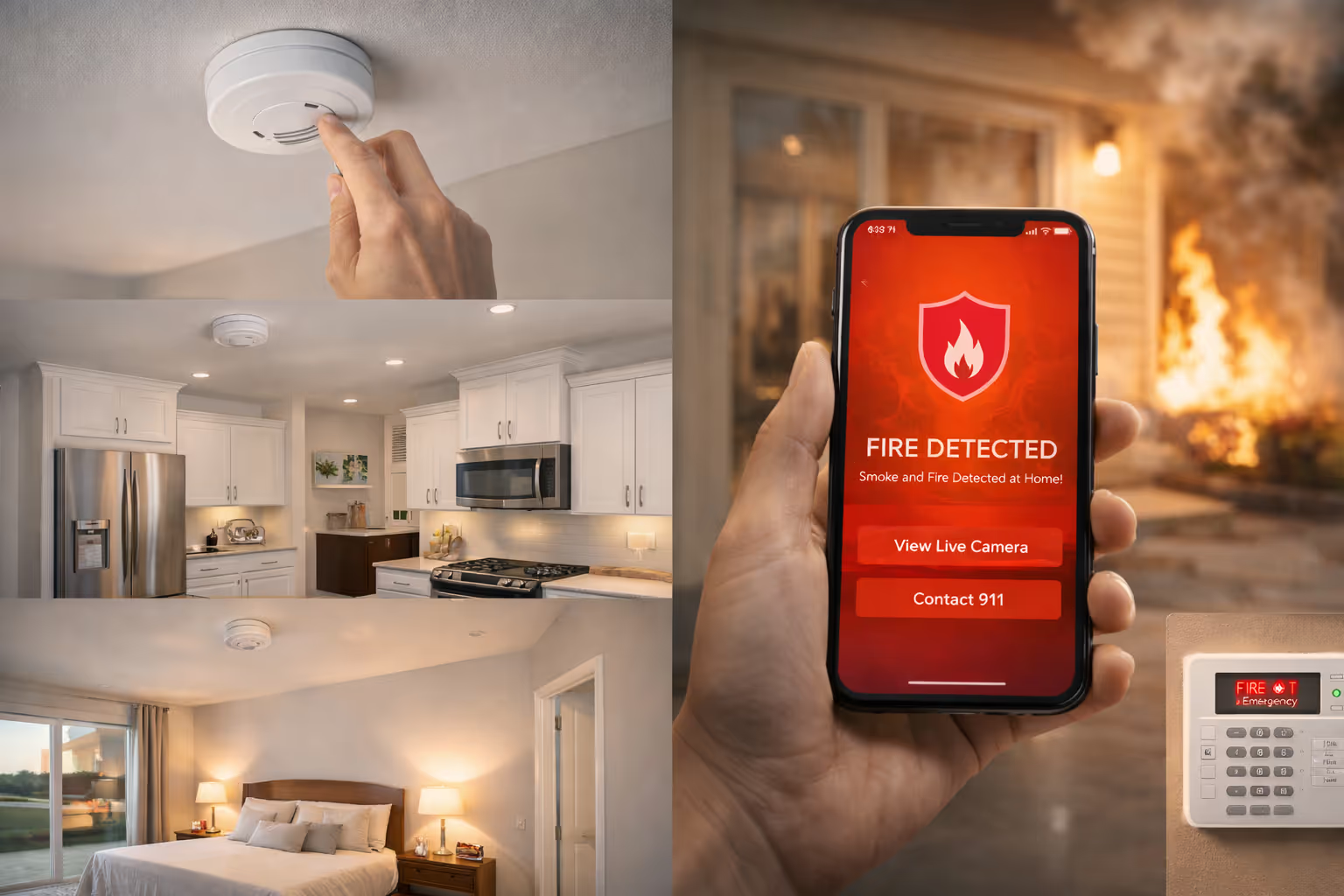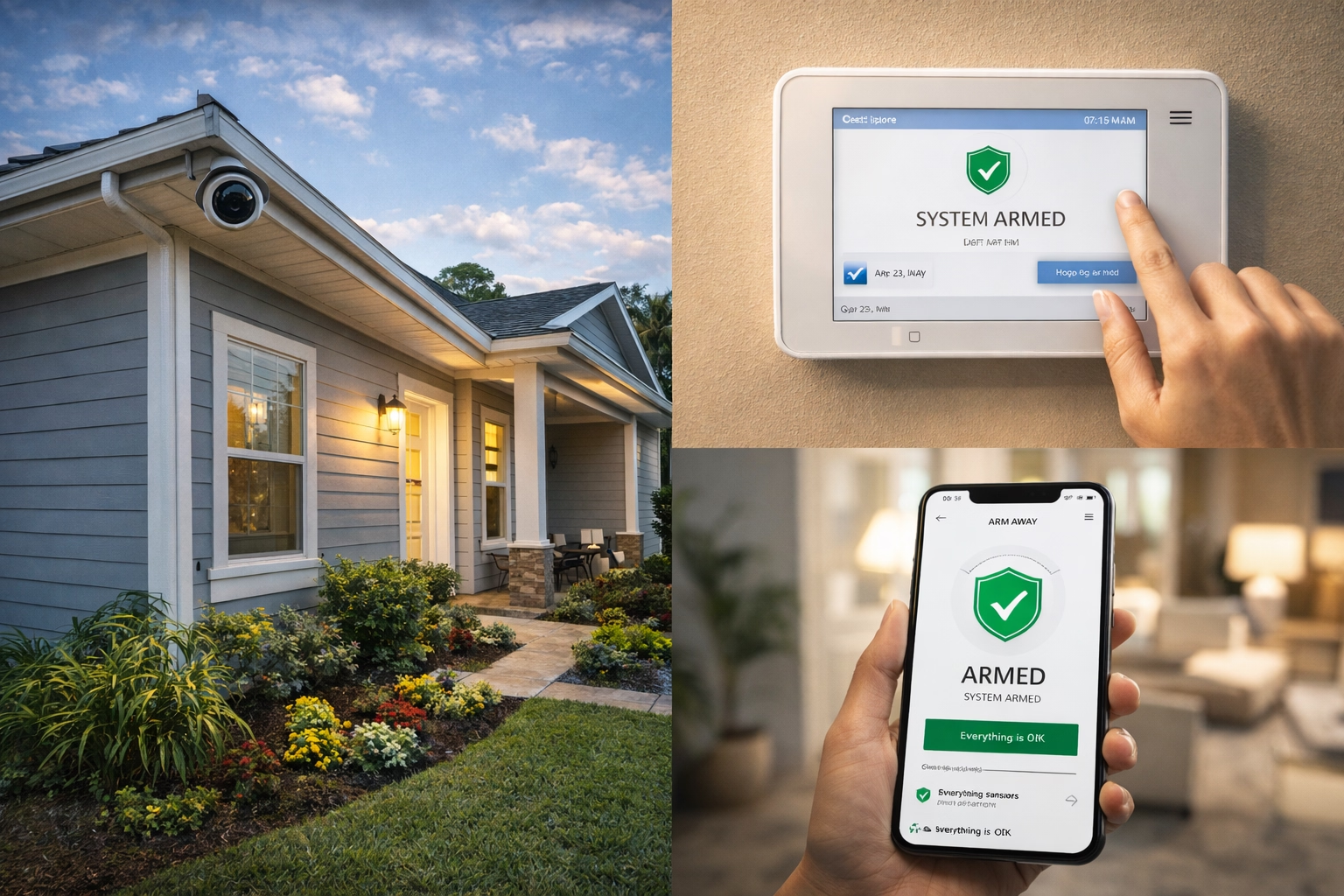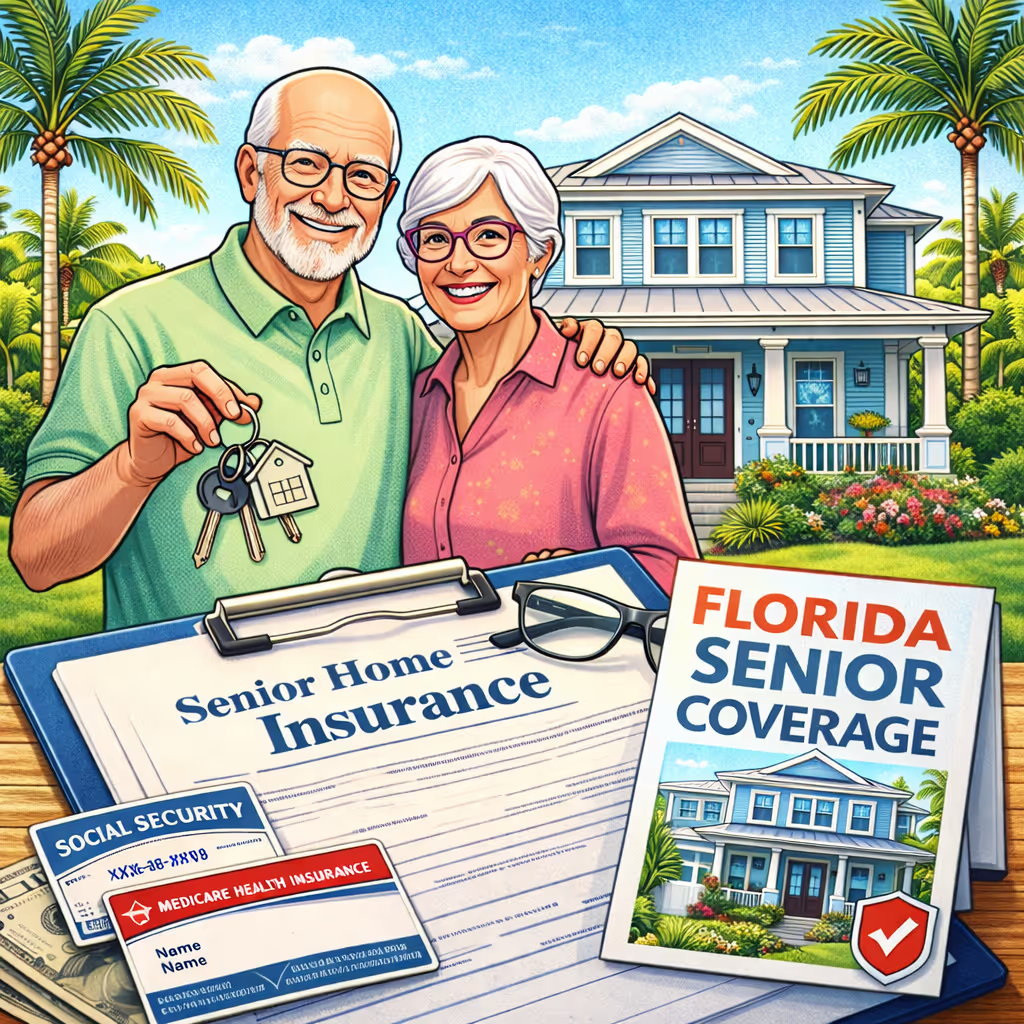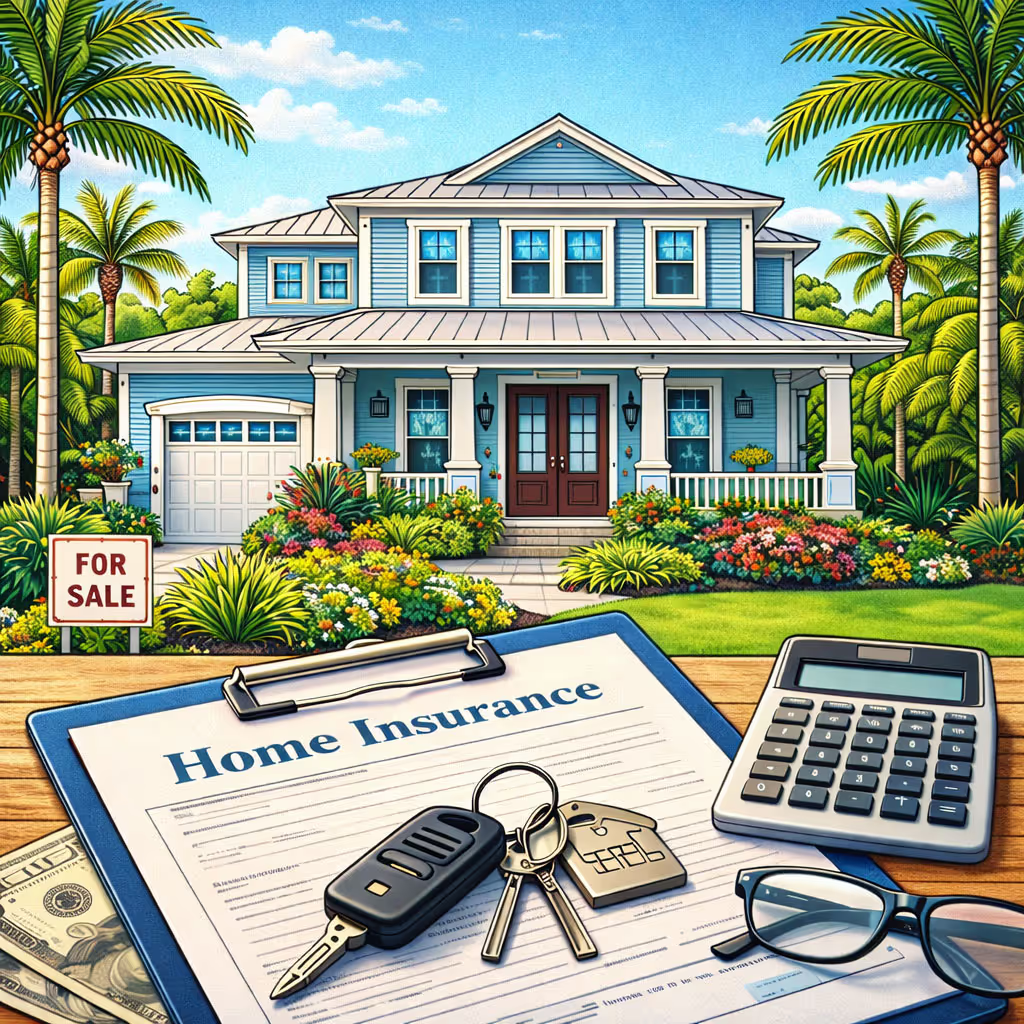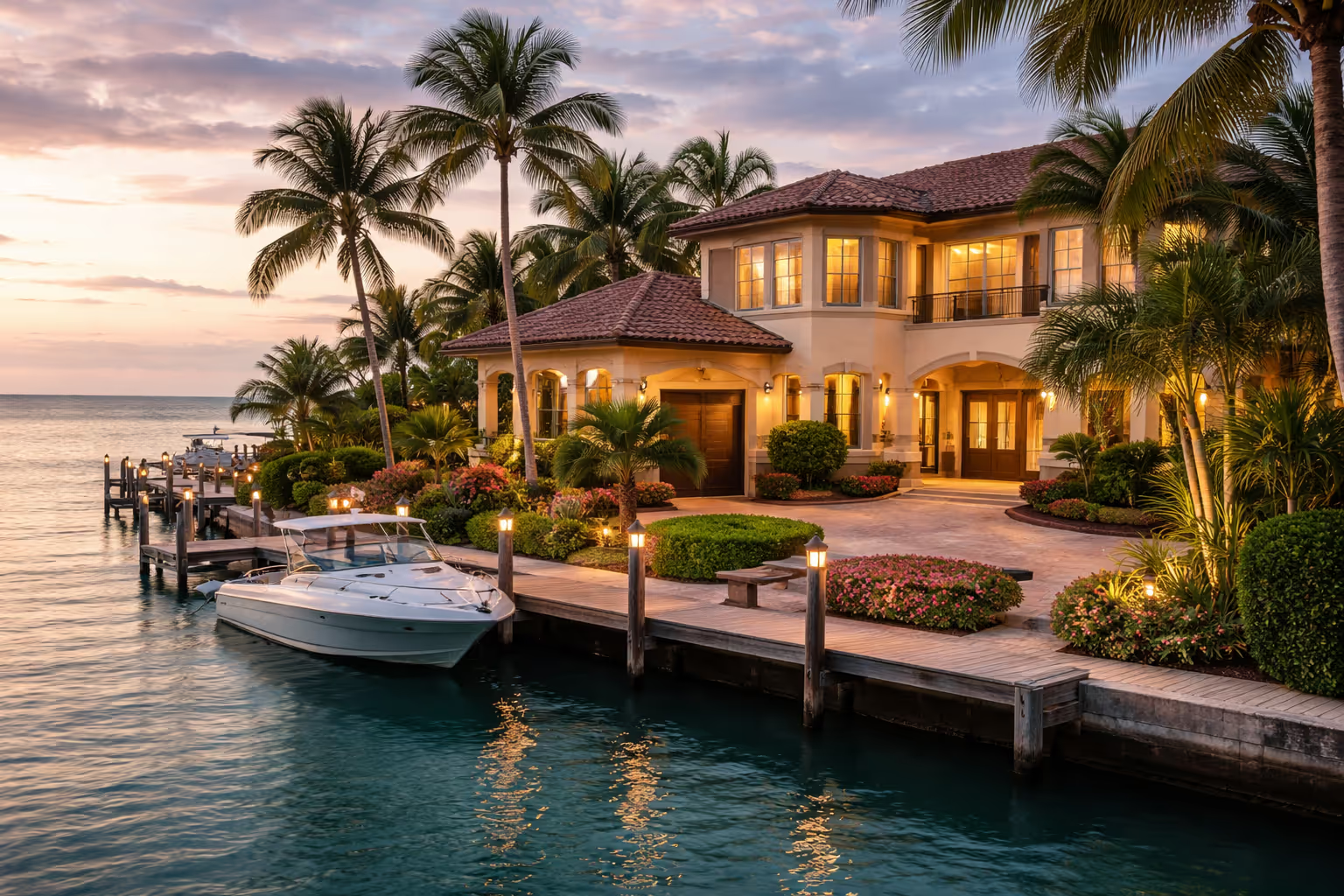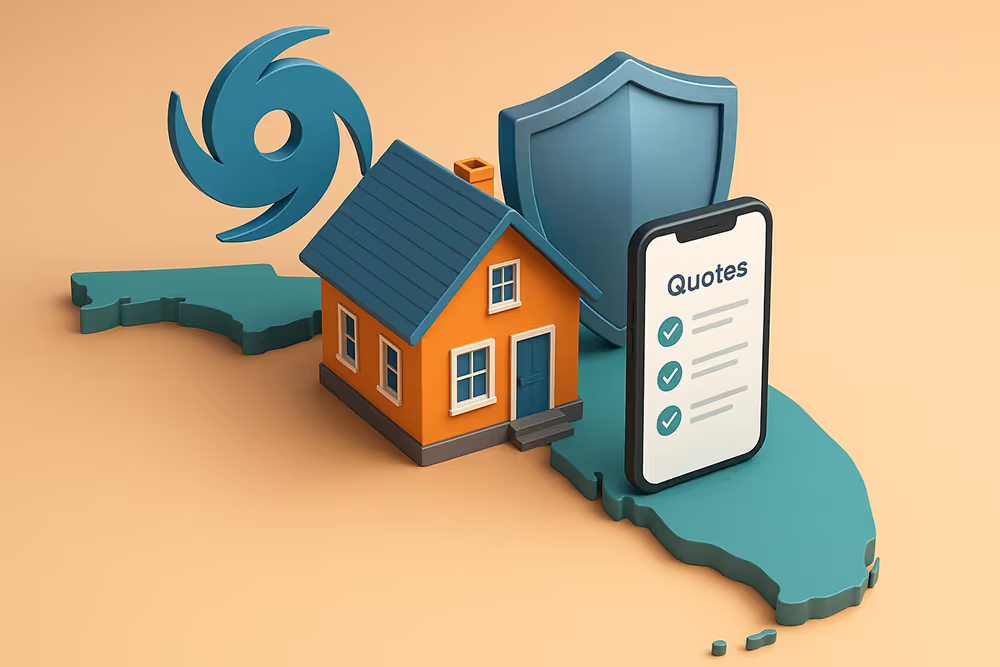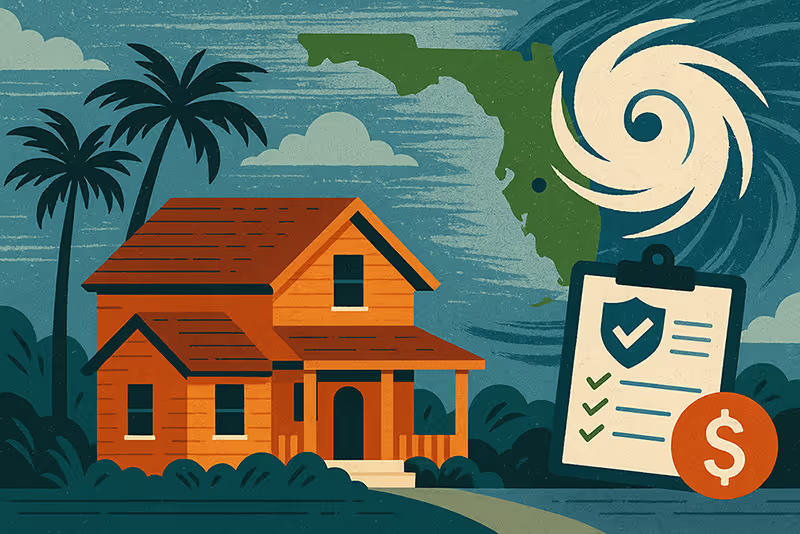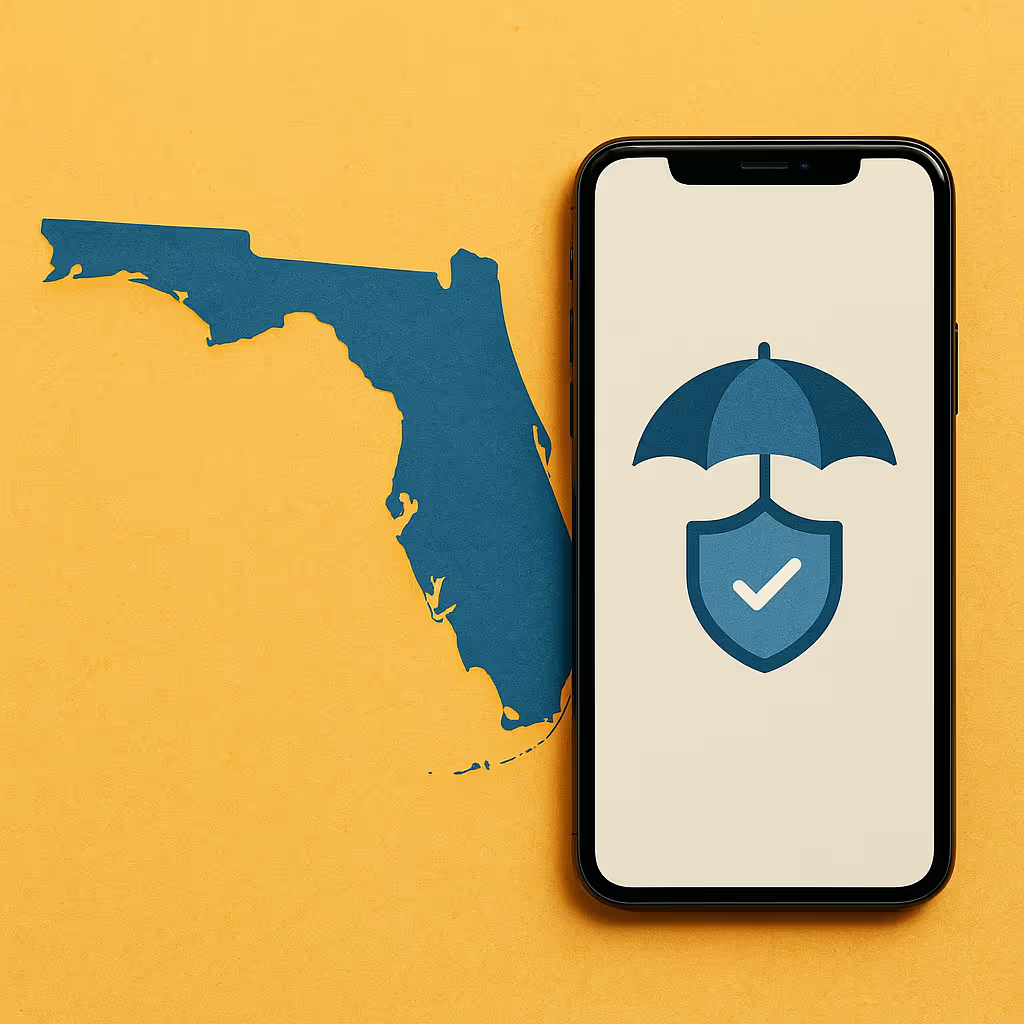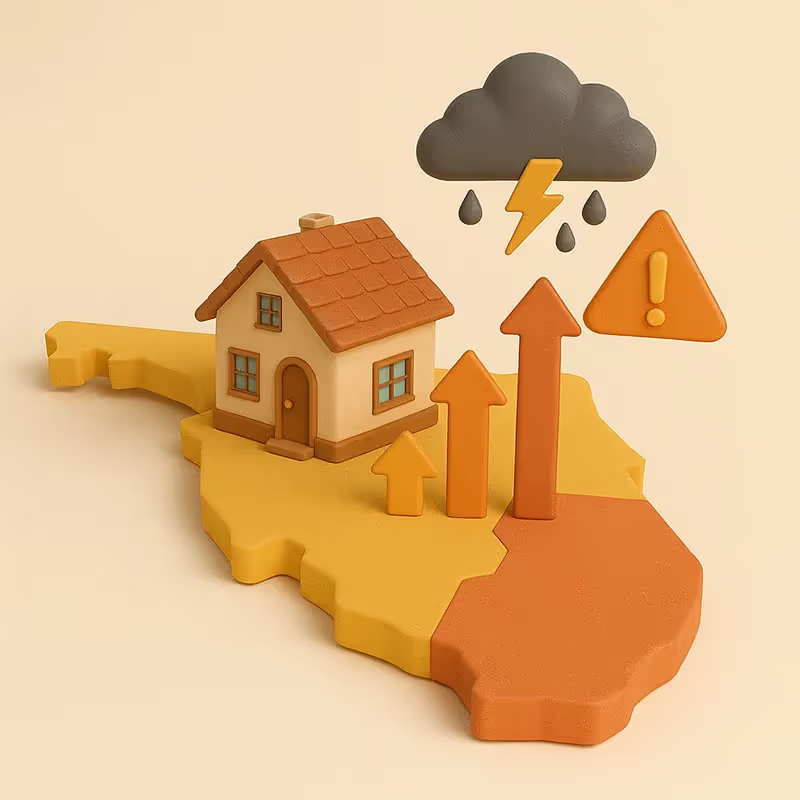Top Florida Home Insurance Companies for 2025 – Compare Rates & Get Free Quotes

Florida’s homeowners insurance market is challenging in 2025, with rising premiums and fewer options. Worth Insurance recommends Olympus for high-value homes, Slide for digital convenience, and Florida Peninsula for top-tier customer service, which are among the leading homeowners insurance companies .
These carriers stand out for strong claims handling, local risk expertise, and tailored coverage—making them solid picks for navigating Florida’s complex insurance landscape.
Home insurance in Florida isn’t getting any easier. Rates keep rising, options keep disappearing, and finding a policy that actually works for your situation—well, that takes more effort than it should.
Maybe you’re looking for something with better service. Or a carrier that gets high-value homes. Or maybe you just want to manage everything from your phone without waiting on hold.
Whatever your needs, these are Worth Insurance’s top picks for 2025—carriers we trust to deliver when it counts.

Why homeowners insurance in Florida matters
Home insurance in Florida isn’t just a formality. It’s often the only thing standing between you and a financial nightmare.
We live in one of the most disaster-prone states in the country. Hurricanes are the obvious threat related to natural disasters , but they’re not the only one. Flooding from heavy rain, rising tides, storm surge—it can all cause major damage. And then there’s sinkholes, lightning strikes, wildfires. Things you may not think about until they happen.
A strong policy doesn’t just help you rebuild. It keeps you from paying tens or even hundreds of thousands out of pocket.
Here’s what to think about:
- Premiums aren’t cheap. In coastal and high-risk areas, it’s normal to see premiums over $10,000 a year. The price can vary wildly by ZIP code, roof age, and whether your home has hurricane mitigation features.
- Standard coverage isn’t enough. Most homeowners policies in Florida don’t include flood insurance. That has to be added separately, either through the National Flood Insurance Program (NFIP) or a private insurer. If you skip this, water damage from storm surge or even heavy rain likely won’t be covered.
- Watch your deductibles. Many Florida policies have separate deductibles for hurricanes or named storms. These aren’t a flat dollar amount—they’re usually 2% to 10% of your home’s insured value. On a $500,000 home, that’s $10,000 to $50,000 out of your pocket before your insurer pays anything.
- Coverage gaps are common. You might assume things like screened enclosures, detached garages, or pool equipment are covered—but they may not be unless you add specific endorsements. Same goes for high-end electronics, collectibles, or custom upgrades.
- Lenders can step in if you’re uninsured. If your coverage lapses, your mortgage company can force a policy on you. These “lender-placed” plans are expensive, cover less, and usually don’t include wind or personal property.
Bottom line: in Florida, it’s not just about having insurance. It’s about having the right coverage—one that actually protects you when the next storm hits. Understanding the fine print can make all the difference.
What’s driving Florida’s insurance crunch?
You might wonder—why is it so hard to find good coverage here? Why does it cost so much, even if you’ve never filed a claim?
There’s no single reason. It’s more like a pile-up of problems that’s been building for years.
Let’s break it down:
- Constant natural threats. Hurricanes get all the attention, but that’s just part of it. We also deal with flooding, hail, tornadoes, wildfires, and lightning—often in places far from the coast. Insurers see every Florida ZIP code as a potential claims risk.
- Aging homes and outdated roofs. A lot of homes here were built in the '80s or earlier. If your roof is more than 15 years old, many insurers either raise your premium, limit your coverage to actual cash value (not replacement cost), or refuse coverage altogether—unless you’ve made storm-resistant upgrades.
- Lawsuit pressure. Florida accounts for nearly 80% of the country’s property insurance lawsuits, while only making up a tiny share of total claims. Most of these suits are over water damage, roofing, or contractor disputes. Even when you’re not involved, the cost of all that legal activity gets passed on to you in the form of higher premiums.
- Flood protection is sold separately. This surprises a lot of people. Homeowners insurance doesn’t cover flood damage—not from storm surge, heavy rain, or rising water. You need to buy a separate flood policy, and many homeowners don’t realize that until it’s too late.
- Mitigation discounts are real—but conditional. If you’ve installed hurricane shutters, impact windows, or reinforced roofing, you could save thousands per year. But here’s the catch: those savings only apply if you submit a certified wind mitigation inspection. No report, no discount.
- Lender-placed coverage is a last resort—and it’s expensive. If your policy lapses, your mortgage lender will buy one for you. These forced-placed policies are basic, overpriced, and usually don’t include windstorm or personal property coverage. You’ll pay more for less protection, and you don’t get a say in the terms.
All of this has made Florida’s insurance market tougher to navigate. The number of insurers willing to write new policies is shrinking, and those that remain are raising rates to stay solvent. It's not your imagination—it really is harder here than almost anywhere else in the U.S.
That’s why getting expert help matters more than ever.

Legal shifts reshaping the market
A lot’s changed in Florida’s insurance world lately—and 2025 isn’t just more of the same.
Lawmakers have passed several reforms to stop the bleeding and bring insurers back to the state. Some of these changes are already showing signs of stabilizing things. Others may take time. Here’s what’s new:
- Faster claims timelines. Insurers are now required to start investigating hurricane-related claims within 14 days and finish them within 90. That’s meant to speed up payouts and reduce delays, especially after major storms.
- Lawsuit reforms. In the past, lawyers could recover fees even if a case was only partially successful. Not anymore. Now, policyholders must win outright to recoup legal costs. This change is expected to reduce the number of minor or questionable lawsuits that drive up costs.
- Roof protection rules. Insurers can’t deny coverage or cancel your policy just because your roof is over 15 years old. That said, older roofs may still face limited payouts (like actual cash value instead of full replacement), especially if they’re worn or outdated.
- Mitigation grants are expanding. The My Safe Florida Home program is offering more funding to help homeowners add hurricane shutters, upgrade roofing systems, and make structural improvements. These upgrades can lower your premium—but also make your home stronger.
- Reinsurance safety net. The state has set aside over $2 billion to help insurers afford reinsurance—basically, backup insurance that protects them after big disasters. This keeps smaller companies afloat and makes it more attractive for new ones to enter Florida’s market.
- Citizens Property Insurance is growing fast. More homeowners are turning to Citizens, the state-run “insurer of last resort.” It’s a solid option if you can’t get private coverage, but expect fewer customization options, stricter guidelines, and sometimes higher rates.
So while the market is still tough, these legal changes are laying the groundwork for a slow recovery. It’s not fixed yet—but the direction is finally changing.
Knowing how these laws impact your insurance provider and own policy can help you make smarter moves—and avoid expensive gaps in coverage.
Top Worth‑Insurance picks for 2025
We’ve spent time reviewing what actually matters to Florida homeowners—not just pricing, but how insurers handle claims, how stable they are financially, and whether their insurance ratings indicate they provide coverage that actually fits local risks.
Here are the carriers we consistently recommend based on experience, reliability, and the kind of service you'd want when things go wrong.
Olympus Insurance: Best for high‑value homes
Olympus focuses on homes that need more than standard coverage—think $1 million+ properties, often with high-end finishes or unique architectural features.
Here’s what sets them apart:
- Tailored protection: Policies can include higher limits and specific endorsements for things like custom cabinetry, imported flooring, luxury appliances, or detached structures like guesthouses or pool cabanas.
- Concierge-level claims: Olympus offers hands-on claims support, especially valuable when large losses involve complex repairs or specialized materials.
- Flexible underwriting: They’re more likely than other carriers to write policies on older, high-value homes—especially if the roof and structure have been upgraded.
- Financial backing: With strong reinsurance in place, Olympus can weather major storm seasons without pulling out of the market.
If your home is high-value, especially in a coastal area, Olympus offers coverage that’s both broad and specific—designed for properties where standard policies fall short.
Slide Insurance: Best tech‑focused option
Slide is built for homeowners who prefer to manage everything online—fast quotes, digital policies, and real-time claim updates, all from your phone or computer.
What makes Slide stand out:
- Fully digital experience: You can quote, bind, manage your policy, and track claims entirely online. No paperwork, no waiting on hold.
- Quick turnaround: Policies are issued quickly, and claims can often be initiated within minutes through their platform.
- Modern coverage structure: Strong protection against Florida-specific risks like windstorm damage and water backup—common issues during heavy storms or hurricanes.
- Access in challenging areas: Slide is writing in many ZIP codes where traditional insurers have scaled back, making it a good fit if you're having trouble finding coverage.
If you value convenience, speed, and the ability to control your policy from your phone, Slide offers one of the most modern insurance experiences in Florida.
Florida Peninsula: Best customer service
Florida Peninsula stands out for putting people first—especially when it matters most, like after a storm.
Here’s why homeowners trust them:
- Florida-focused: Based in the state, their team understands local risks—from hurricane patterns to building codes.
- Responsive claims support: Known for picking up the phone, following through, and guiding policyholders through the claims process step by step.
- Strong satisfaction scores: Low complaint ratios and consistently positive customer feedback reflect how they handle problems—not just when things go right.
- Local agent network: Real people you can meet or call. No endless transfers or automated responses when you need help quickly.
If clear communication and dependable service are high on your list, Florida Peninsula is a solid choice—especially for homeowners who’ve dealt with confusing claims or slow responses in the past.
Red flags to watch for
Not all insurers are created equal—and in Florida’s complex market, picking the wrong one can cost you more than just money. Before you commit, take a closer look at how an insurer actually performs.
Here’s what to watch for:
- High claim-denial rates: If a company regularly denies or underpays claims, especially after hurricanes or water damage, that’s a red flag. Look for published claims data or reviews that mention problems with payments or delays.
- Limited coverage options: A good Florida policy should include—or allow you to add—windstorm, flood, and personal property coverage. If those are missing or capped at low limits, your out-of-pocket risk goes way up during a major storm.
- Poor customer service track record: Low satisfaction scores, high complaint volumes with the Florida Office of Insurance Regulation, or repeated issues mentioned in reviews can indicate future headaches. Especially important if you’re in a high-risk area where claims are more likely.
- No way to reach a human: Some companies operate fully online and don’t offer live support. That might sound efficient—until you need urgent help after a storm and can’t speak with anyone. A hybrid model with both tech and phone support is often more reliable.
Do your homework:
- Check financial ratings from AM Best or Demotech to make sure the company is stable enough to pay claims after a major storm.
- Look up complaint trends through the National Association of Insurance Commissioners (NAIC) or Florida’s Department of Financial Services.
- Read real customer feedback on Google, BBB, or insurance forums to spot patterns—positive or negative.
Taking time to vet your insurer upfront can save you a lot of stress when the unexpected happens. If something doesn’t feel right, it’s worth asking more questions—or looking elsewhere.

Choosing the right policy
Shopping for homeowners insurance in Florida can feel overwhelming—but it doesn’t have to be. If you break it down into a few key steps, you can avoid common mistakes and get coverage that actually works when you need it.
Here’s how to get started:
- Define your coverage needs: Florida policies vary widely. Make sure your policy includes—or allows you to add—protection for:
- Windstorm damage: Often covered, but usually with a separate deductible.
- Flooding: Not included in standard policies. Consider an NFIP or private flood policy, even if it’s not required.
- Hurricane damage: Covered through wind protection and other endorsements.
- Sinkholes or ground collapse: May need to be added specifically, especially in high-risk counties.
- Check the company’s financial health:
Look up AM Best or Demotech ratings to make sure your insurer can actually pay out claims after a major event. A policy is only useful if the company behind it is solvent when it matters. - Ask about available discounts: Many homeowners miss out on savings just because they don’t ask. You could lower your premium by:
- Upgrading your roof or windows (with wind mitigation documentation)
- Installing security systems or smoke detectors
- Bundling with auto or umbrella insurance
- Understand your deductibles:
Most Florida homeowners policies have separate deductibles for hurricanes or named storms—typically 2% to 10% of your home’s insured value. That’s a big chunk of money to come up with during an emergency, so plan for it ahead of time. - Work with a knowledgeable agent:
Florida is one of the most complex insurance markets in the country. A local agent who understands your ZIP code, your property type, and current carrier availability can help you avoid coverage gaps and wasted time.
Spending a little time upfront—reading the fine print, asking questions, comparing real options—can save money and thousands in claims and premiums later on.
Need help finding the right coverage?
We’ve helped thousands of Florida homeowners—from first-time buyers to long-time investors—navigate this tricky market. Whether you need help understanding your current policy, comparing carriers, or spotting gaps you didn’t know you had, we’re here for it.
If you’re ready to get a second opinion or want to see what better coverage could look like, start with a free quote. It’s quick, easy, and tailored to your ZIP code.
Frequently Asked Questions
How much does homeowners insurance cost in Florida?
In high-risk areas—like coastal counties or flood zones—premiums often exceed $10,000 per year. Your exact rate depends on your home’s location, construction, age, roof type, and whether you’ve made storm-resistance upgrades.
Does homeowners insurance include hurricane damage?
Yes, but with conditions. Most policies cover wind damage from hurricanes, though there’s usually a separate deductibleranging from 2% to 10% of your home’s insured value.
Flood damage—from storm surge or heavy rain—is not included and must be purchased separately through FEMA or a private flood insurer.
Is flood insurance required in Florida?
It’s only required if you have a federally backed mortgage in a designated high-risk flood zone. That said, considering Florida’s flood history, it’s strongly recommended for most homeowners—even those outside FEMA's official high-risk areas.
Can upgrades lower my insurance premium?
Yes. Installing impact-resistant windows, hurricane shutters, or a fortified roof can lead to significant savings on your dwelling coverage . To qualify, you’ll need a certified wind mitigation inspection to verify the upgrades and submit documentation to your insurer.
If you’re a homeowner in Florida, having the right insurance coverage is essential to protect your investment from hurricanes, floods, and other unexpected events. Learn more about the different coverage options, policy requirements, and ways to save by visiting our detailed guide to Florida homeowners insurance.
To see how Worth can reduce your risk.
Get a Free Quote


